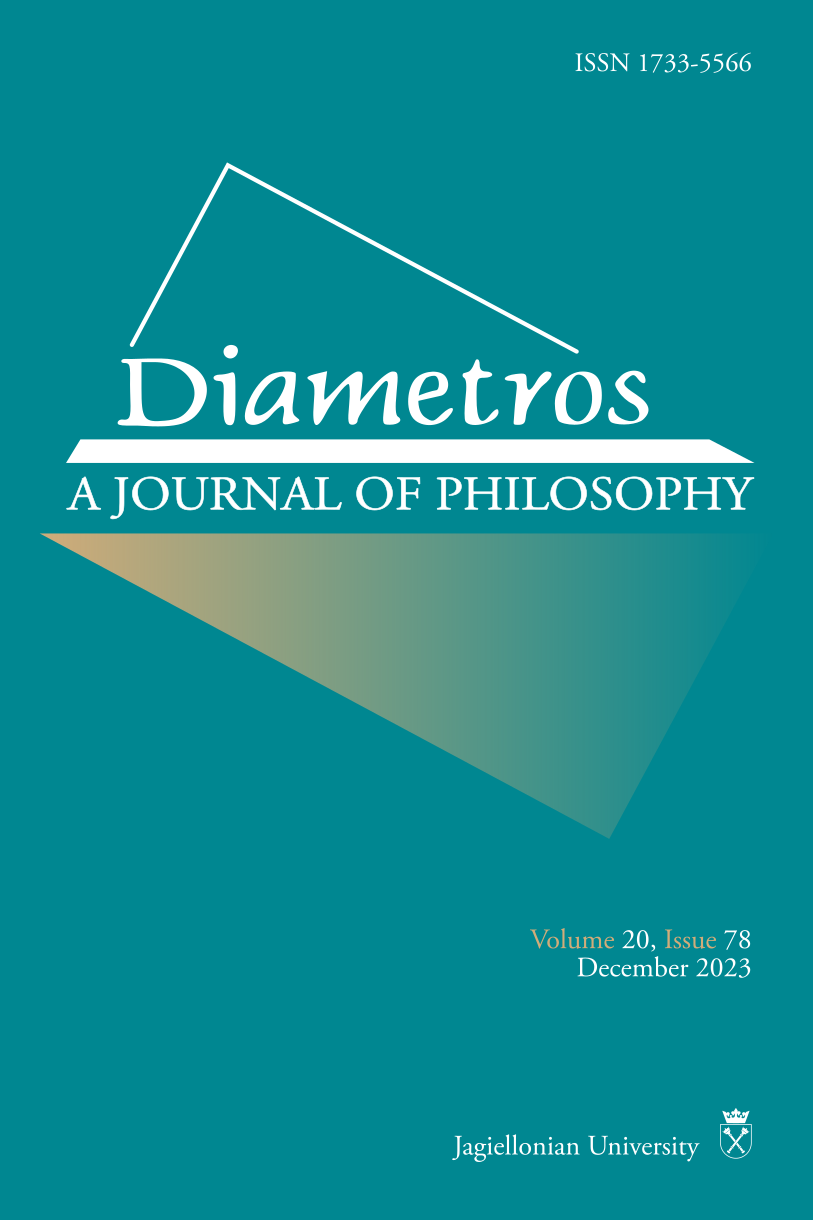Expanded access programs as a source of cognitive data
Main Article Content
Abstract
The presented article is devoted to the question of whether extended access therapy can or should be accompanied by research activity. It consists of three parts. The first lists the tasks that can be used for medical information regarding extended access programs, which leads to the conclusion that even taking into account the specific limitations of their cognitive value, this type of data can be meaningfully used. The second part is devoted to the limited regulations in European law concerning the discussed issue, and the Polish Act on the Professions of Physician and Dentist which grants physicians/researchers broader powers. In the last part of the article, two arguments are presented to ethically justify the granting of such broad powers to researchers, and thus limiting the autonomy of patients.
Article Details
Issue
Section

This work is licensed under a Creative Commons Attribution 4.0 International License.
By submitting his/her work to the Editorial Board, the author accepts, upon having his/her text recommended for publication, that Diametros applies the Attribution 4.0 International (CC BY 4.0) license to the works we publish. Under this license, authors agree to make articles legally available for reuse, without permission or fees. Anyone may read, download, copy, print, distribute or reuse these articles without asking prior permission from the publisher or the author, as long as the author and original source are properly cited. The author holds the copyright without any other restrictions. Full information about CC-BY: https://creativecommons.org/licenses/by/4.0/legalcode.
How to Cite
References
Caplan A., Bateman-House A. (2014), Compassion for Each Individual’s Own Sake, „The American Journal of Bioethics” 14 (11): 16–17.
Chapman C.R., Moch K.I., McFadyen A., Kearns L., Watson T., Furlong P., Bateman-House A. (2019), What Compassionate Use Means for Gene Therapies, „Nature Biotechnology” 37 (4): 352–354.
CIOMS (2023), Draft Report of CIOMS Working Group XIII on Real-World Data and Real-World Evidence in Regulatory Decision Making, URL = https://cioms.ch/working-groups/real-world-data-and-real-world-evidence-in-regulatory-decision-making/ [dostęp 16.06.2023].
EMA (2007), Guideline on Compassionate Use of Medicinal Products, Pursuant to
Article 83 of Regulation (Ec) No 726/2004, URL = https://www.ema.europa.eu/en/documents/regulatory-procedural-guideline/guideline-compassionate-use-medicinal-products-pursuant-article-83-regulation-ec-no-726/2004_en.pdf [dostęp 02.06.2023].
FDA (2020), Long Term Follow-Up After Administration of Human Gene Therapy Products. Guidance for Industry, URL = https://www.fda.gov/media/113768/download [dostęp 08.08.2023].
Harris J. (2005), Scientific Research Is a Moral Duty, „Journal of Medical Ethics” 31 (4): 242–248.
Jarow J.P., Moscicki R. (2017), Impact of Expanded Access on FDA Regulatory Action and Product Labeling, „Therapeutic Innovation & Regulatory Science” 51 (6): 787–789.
Klonoff D.C. (2020), The Expanding Role of Real-World Evidence Trials in Health Care Decision Making, „Journal of Diabetes Science and Technology” 14 (1): 174–179.
Magnus D. (2014), Compassion and Research in Compassionate Use, „The American Journal of Bioethics” 14 (11): 1–2.
Polak T.B., Cucchi D.G.J., van Rosmalen J., Uyl-de Groot C.A., Darrow J.J. (2022), Generating Evidence from Expanded Access Use of Rare Disease Medicines: Challenges and Recommendations, „Frontiers in Pharmacology” 13: 913567.
Rawls J. (1964), Legal Obligation and the Duty of Fair Play, [w:] Law and Philosophy: A Symposium, S. Hook (red.), New York University Press, New York: 3–18.
Rawls J. (2009), Teoria sprawiedliwości, tłum. M. Panufnik, J. Pasek, A. Romaniuk, przekład przejrzał i uzupełnił S. Szymański, WN PWN, Warszawa.
Rawson K. (2018), Expanded Access Data Can Support Approval Decisions, US FDA Says, „Pink Sheet. Pharma Intelligence” 21: 1–5.
Roth-Cline M., Nelson R. (2014), FDA Implementation of the Expanded Access Program in the United States, „The American Journal of Bioethics” 14 (11): 17–19.
Rozenberg O., Greenbaum D. (2020), Making It Count: Extracting Real World Data from Compassionate Use and Expanded Access Programs, „The American Journal of Bioethics” 20 (7): 89–92.
Sarp S., Reichenbach R., Aliu P. (2022), An Approach to Data Collection in Compassionate Use/Managed Access, „Frontiers in Pharmacology” 13: 1–6.
Walker M.J., Rogers W.A., Entwistle V. (2014), Ethical Justifications for Access to Unapproved Medical Interventions: An Argument for (Limited) Patient Obligations, „The American Journal of Bioethics” 14 (11): 3–15.
Wicks P., Heywood J.A. (2014), Data Donation Could Power the Learning Health Care System, Including Special Access Programs, „The American Journal of Bioethics” 14 (11): 27–28.
Akty prawne
Ustawa z dnia 5 grudnia 1996 r. o zawodach lekarza i lekarza dentysty, Dz.U. 2023.1516 t.j.
Rozporządzenie (WE) nr 726/2004 Parlamentu Europejskiego i Rady z dnia 31 marca 2004 r. ustanawiające unijne procedury wydawania pozwoleń dla produktów leczniczych stosowanych u ludzi i do celów weterynaryjnych i nadzoru nad nimi oraz ustanawiające Europejską Agencję Leków, Dz.U. L 136 z 30.4.2004.
Dyrektywa 2001/83/WE Parlamentu Europejskiego i Rady z dnia 6 listopada 2001 r. w sprawie wspólnotowego kodeksu odnoszącego się do produktów leczniczych stosowanych u ludzi, Dz.U. L 311 z 28.11.2001.
CFR Part 312 (up to date as of 1/11/2023), Code of Federal Regulations, Title 21 – Food and Drug; Chapter I Food and Drug Administration, Department of Health and Human Services; Subchapter D – Drugs for Human Use, URL = https://www.ecfr.gov/current/title-21/chapter-I/subchapter-D [dostęp 06.06.2023]
